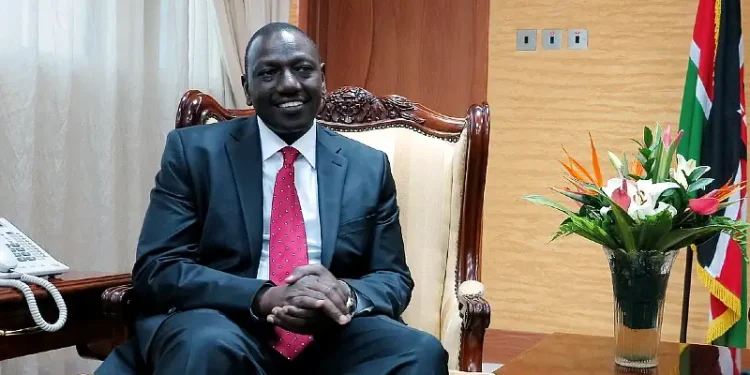A high-level diplomatic call between Secretary of State Marco Rubio and Kenyan President William Ruto spotlighted Haiti’s fragile security, the resilience of U.S.–Kenya relations, and the search for new trade opportunities.
The timing underscores growing diplomatic pressures and economic uncertainty affecting both nations.
Introduction
Secretary Marco Rubio spoke with President William Ruto to commend Kenya’s leadership in Haiti, reaffirm U.S.–Kenya relations, and explore commercial ties.
The call, held amid rising uncertainty over Haiti’s security mission and Kenya’s trade prospects, highlights how diplomacy and economics intertwine at a pivotal moment for both countries.
Kenya’s Role in Haiti’s Security Mission
Kenya’s leadership in the Multinational Security Support Mission remains central to efforts to restore stability in Haiti.
Hundreds of Kenyan officers have already been deployed to assist local police in countering armed gangs, though limited resources and unclear operational structures pose challenges.
For Haitians, the mission is not an abstract exercise. In neighborhoods plagued by gang violence, every delay or withdrawal carries direct human costs, from restricted access to healthcare to the daily fear of violence.
Diplomatic Stakes
The United States has invested heavily in Haiti’s stabilization, yet recently signaled reluctance to continue bearing the financial burden alone. By urging broader international contributions, Washington risks weakening Kenya’s resolve if new funds fail to materialize. The call was as much about reassurance as it was about strategy.
The Strategic Importance of U.S.–Kenya Relations
Kenya holds the status of Major Non-NATO Ally, underscoring decades of military and counterterrorism collaboration. The call reaffirmed this bond at a time when policy shifts and funding freezes create uncertainty about Washington’s long-term commitments.
From Washington’s perspective, Kenya remains a cornerstone for U.S. interests in East Africa. From Nairobi’s perspective, however, the stakes are higher than symbolism. Trade, jobs, and economic survival are directly tied to the evolving U.S.–Kenya partnership.
Economic and Trade Opportunities
Trade negotiations form a crucial backdrop. The African Growth and Opportunity Act (AGOA), which grants Kenya duty-free access to U.S. markets, is due to expire in 2025.
Without an alternative agreement, tariffs could undermine Kenya’s competitiveness and destabilize thousands of factory jobs in the apparel sector.
Meanwhile, Kenya seeks a bilateral free-trade agreement with the United States to replace AGOA and lock in favorable terms. Only Morocco currently enjoys such an agreement in sub-Saharan Africa.
The outcome could reshape U.S. investment opportunities and consumer supply chains.
Current Economic Flashpoints
| Issue | Effect on Kenya | Impact on the U.S. |
|---|---|---|
| Haiti Mission Funding | Strains Kenyan resources, risks withdrawal | Weakens U.S. influence in region |
| AGOA Expiration 2025 | Threatens apparel jobs, currency stability | Raises consumer costs, disrupts supply chains |
| Tariff Pressures | Loss of competitiveness in textiles | Higher import costs for retailers |
| Strategic Partnership | Strengthens security cooperation | Maintains U.S. foothold in East Africa |
Shifting Global Diplomacy
Kenya has increasingly asserted an independent foreign policy, balancing ties with both the U.S. and China. This dual-track strategy reflects Nairobi’s intent to diversify partnerships and resist external pressure.
From Washington’s view, keeping Kenya aligned with Western-led initiatives is vital. The call served as a signal of intent: the U.S. does not want to cede influence in a region where geopolitical competition is intensifying.
Recent Context Matters
-
The timing came shortly after the anniversary of the 1998 U.S. embassy bombings in Kenya and Tanzania, a reminder of shared security concerns.
-
It also followed new U.S. tariffs on Kenyan exports, creating strain in what is otherwise a deepening economic partnership.
Local and Global Implications
The consequences of this call ripple far beyond diplomacy:
-
For Haiti: Continued Kenyan engagement offers hope for restoring governance, but delays and funding cuts deepen local crises.
-
For Kenya: Apparel workers face job losses if tariffs persist and AGOA expires without replacement. A weaker currency reduces consumer purchasing power.
-
For the United States: Businesses face higher supply costs, while policymakers risk diminished credibility if commitments appear uncertain.
What This Means Going Forward
Secretary Rubio’s conversation with President Ruto carried symbolic and practical weight. It aimed to sustain Kenya’s leadership in Haiti, advance economic negotiations, and reinforce a strategic partnership tested by shifting global dynamics.
As both nations look ahead, the stakes remain high. Haiti’s fragile security, Kenya’s trade ambitions, and Washington’s credibility are intertwined in ways that affect workers, businesses, and communities across continents.
Final Thoughts
The U.S.–Kenya relationship illustrates how diplomacy, economics, and security intersect in today’s world.
Secretary Rubio’s call reaffirmed a partnership that stretches across continents but is being reshaped by pressing crises and new geopolitical realities.
Sources: US Department of State, Security Council Report, United Nations and AGOA.
Prepared by Ivan Alexander Golden, Founder of THX News™, an independent news organization delivering timely insights from global official sources. Combines AI-analyzed research with human-edited accuracy and context.









